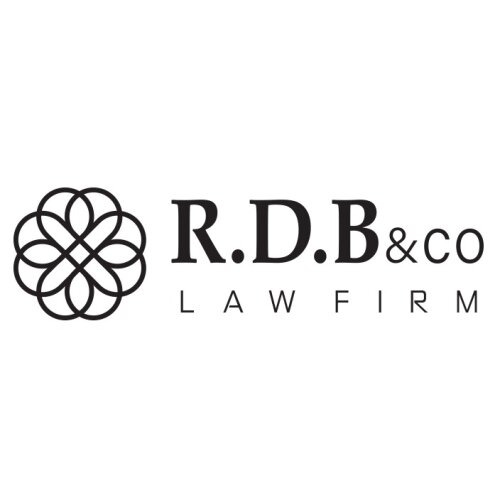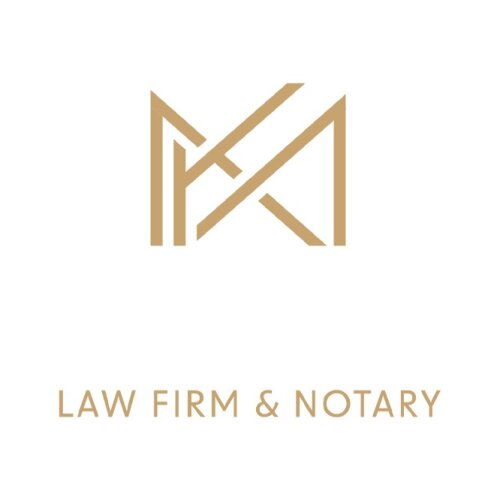Best Estate Planning Lawyers in Petaẖ Tiqwa
Share your needs with us, get contacted by law firms.
Free. Takes 2 min.
List of the best lawyers in Petaẖ Tiqwa, Israel
About Estate Planning Law in Petaḥ Tiqwa, Israel
Estate planning law in Petaḥ Tiqwa, Israel, involves the management and allocation of an individual's assets and properties during their lifetime and after their death. This includes drafting wills, setting up trusts, assigning powers of attorney, and more. The goal is to ensure a clear and efficient transfer of assets to heirs and beneficiaries, while minimizing legal hassles, taxes, and potential disputes. Israeli law governs the processes and legal instruments involved in estate planning.
Why You May Need a Lawyer
Engaging a lawyer for estate planning in Petaḥ Tiqwa can be crucial for several reasons:
1. **Complexity of Assets:** If you have diverse and substantial assets, a lawyer can help in strategically planning their distribution.
2. **Family Dynamics:** A lawyer can provide counsel on how to manage family expectations and distribute assets to prevent disputes.
3. **Legal Documentation:** Properly drafting documents like wills and trusts require legal expertise to ensure they adhere to local laws and are legally binding.
4. **Tax Planning:** Lawyers can assist in minimizing the tax implications on your estate through legal means.
5. **Changing Laws:** Estate laws can change, and a lawyer can help you stay compliant by updating your estate plans accordingly.
Local Laws Overview
Key aspects of local laws relevant to estate planning in Petaḥ Tiqwa, Israel include:
1. **Inheritance Law:** Governed by the Israeli Inheritance Law of 1965, it covers the distribution of assets in the absence of a will.
2. **Wills:** Legally binding if written and signed in accordance with Israeli law. Types include handwritten, orally declared (in exceptional cases), and witnessed wills.
3. **Trusts:** Used to manage assets for beneficiaries, including minors, and can minimize tax liabilities and legal complications upon death.
4. **Power of Attorney:** Allows individuals to appoint someone to manage their affairs if they become incapacitated.
5. **Living Wills:** Legal documents that specify an individual's wishes regarding medical care should they become unable to communicate.
6. **Taxes:** Estate and inheritance taxes in Israel can influence how assets are distributed and should be considered in planning.
Frequently Asked Questions
1. What is a will and why do I need one?
A will is a legal document that outlines your wishes regarding the distribution of your assets and the care of any minor children after your death. It helps ensure that your desires are fulfilled and can prevent legal disputes among heirs.
2. What happens if I die without a will in Petaḥ Tiqwa?
If you die without a will, your estate will be distributed according to the Israeli inheritance laws, which may not align with your personal wishes.
3. Can I draft my will myself?
While you can draft your own will, it is advisable to consult a lawyer to ensure it meets all legal requirements and is properly witnessed, making it less susceptible to challenges.
4. What is a living will?
A living will outlines your medical care preferences if you become incapacitated and unable to communicate. It guides healthcare providers and loved ones in making decisions on your behalf.
5. What is a trust?
A trust is a legal arrangement where a trustee holds and manages assets on behalf of beneficiaries. Trusts can be used to manage and protect assets, especially for beneficiaries who are minors or require special care.
6. How can I minimize taxes on my estate?
Tax minimization strategies can include setting up trusts, making charitable donations, and using tax-efficient investment vehicles. Consulting a lawyer or tax advisor is essential for tailored advice.
7. What is a power of attorney?
A power of attorney is a legal document that allows you to appoint someone to manage your financial and/or health affairs if you become unable to do so.
8. How often should I update my estate plan?
Review your estate plan every few years or after major life events (e.g., marriage, birth of a child, significant financial changes) to ensure it remains aligned with your current wishes and circumstances.
9. Can an estate plan be challenged?
Yes, an estate plan can be challenged, especially if there are issues with the validity of the documents or disputes among beneficiaries. Proper legal advice can help minimize these risks.
10. What are the costs involved in estate planning?
The costs can vary based on the complexity of your estate and the services required. It often includes legal fees for drafting documents, setting up trusts, and ongoing advisory fees.
Additional Resources
For those seeking additional information or assistance, the following resources can be helpful:
1. **Israel Ministry of Justice - Administration of Estates:** Offers guidelines and services related to inheritance laws and estate administration.
2. **Petaḥ Tiqwa Municipality Legal Aid:** Provides resources and directs residents to local legal aid services.
3. **Israel Bar Association:** A professional organization that can help find qualified estate planning lawyers.
4. **Non-Profit Organizations:** Such as Yad LeBanim and other family support organizations that offer advice and counseling on estate management.
Next Steps
If you need legal assistance in estate planning, consider the following steps:
1. **Identify Your Needs:** Determine the areas where you require legal help, such as will drafting, trusts, tax planning, etc.
2. **Research Potential Lawyers:** Look for lawyers who specialize in estate planning and have experience with local laws in Petaḥ Tiqwa.
3. **Schedule Consultations:** Many lawyers offer initial consultations to discuss your needs and how they can assist you.
4. **Prepare Documentation:** Gather all relevant documents, including property deeds, financial statements, existing wills, etc.
5. **Discuss Costs:** Be clear about legal fees and ensure you understand the costs involved before proceeding.
6. **Review and Update as Needed:** Regularly review your estate plan, especially after major life changes, to ensure it remains effective and aligned with your wishes.
Lawzana helps you find the best lawyers and law firms in Petaẖ Tiqwa through a curated and pre-screened list of qualified legal professionals. Our platform offers rankings and detailed profiles of attorneys and law firms, allowing you to compare based on practice areas, including Estate Planning, experience, and client feedback.
Each profile includes a description of the firm's areas of practice, client reviews, team members and partners, year of establishment, spoken languages, office locations, contact information, social media presence, and any published articles or resources. Most firms on our platform speak English and are experienced in both local and international legal matters.
Get a quote from top-rated law firms in Petaẖ Tiqwa, Israel — quickly, securely, and without unnecessary hassle.
Disclaimer:
The information provided on this page is for general informational purposes only and does not constitute legal advice. While we strive to ensure the accuracy and relevance of the content, legal information may change over time, and interpretations of the law can vary. You should always consult with a qualified legal professional for advice specific to your situation.
We disclaim all liability for actions taken or not taken based on the content of this page. If you believe any information is incorrect or outdated, please contact us, and we will review and update it where appropriate.











